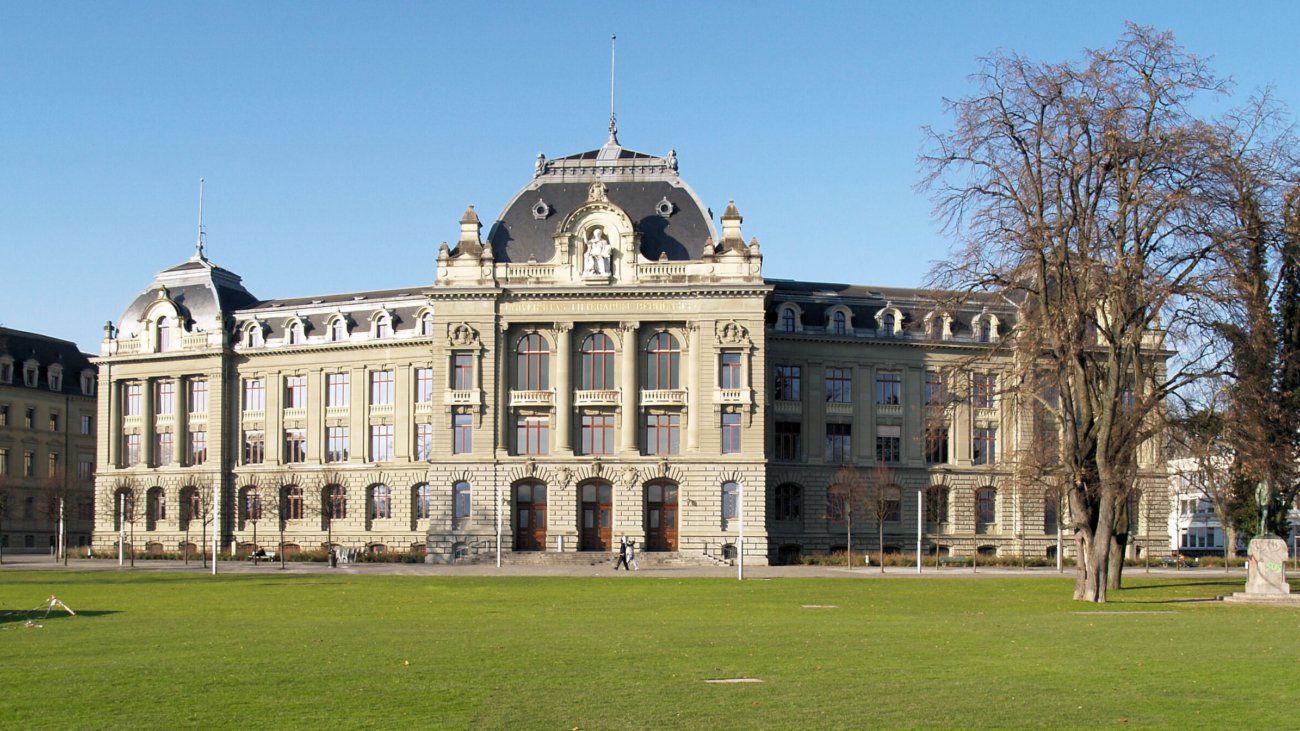MBBS in Switzerland: Course Highlights
Known for having one of the most advanced education systems in the world, Switzerland has become a popular destination for pursuing medicine. The medical universities and colleges in Switzerland offer a wide range of scholarships to international students. These scholarships are either government-funded or private.
Some highlights of MBBS in Switzerland are mentioned in the table below-
| Duration | 3 years |
| Mode of instruction | French, German |
Top 10 Universities in Switzerland for MBBS (Bachelor of Medicine and Bachelor of Surgery)
| University | QS World University Ranking 2022 |
| ETH Zurich – Swiss Federal Institute of Technology | 6 |
| University of Zurich | 69 |
| École Polytechnique Fédérale de Lausanne (EPFL) | 76 |
| University of Geneva | 111 |
| University of Basel | 151-200 |
| University of Bern | 151-200 |
| University of Lausanne | 201-250 |
| University of Fribourg | 251-300 |
| University of Neuchâtel | 501-550 |
| University of St. Gallen | 601-650 |
MBBS Specializations in Switzerland
- Human Movement Science and Sport
- Neurosciences
- Molecular Health Sciences
- Medical technology
- Medical Engineering
- Medical Imaging
MBBS in Switzerland: Curriculum
The year-wise curriculum followed by Swiss universities is given in the table below-
| Year | Curriculum |
| First Year | The first year of medicine in Switzerland includes core subjects like Physics, Chemistry, Biology, and Organ Systems. |
| Second Year | The second Year focuses on morphology and function. |
| Third Year | The final year deals with understanding the components of the disease. |
Top Universities for MBBS in Switzerland
| University | QS World University Rankings | Tuition fees |
| University of Bern | 119 | CHF 750 per semester |
| University of Zurich | 70 | CHF 720 per semester |
| University of Basel | 138 | — |
| University of Geneva | 105 | CHF 500 per semester |
| University of Lausanne | 176 | CHF 580 per semester |
Intakes in Switzerland
There are no fixed intakes to apply in Switzerland. However, the majority of the universities follow two intakes: Autumn or Fall Intake, and Spring Intake.
| Intake | Admission cycle | Application deadline |
| Fall intake: The fall intake in Switzerland starts in September and goes up till February | The admission cycle for this intake starts in June | 31st March |
| Spring intake: The fall intake in Switzerland starts in February and goes up till June | The admission cycle for this intake starts in November | 31st August |
Eligibility for doing MBBS (Bachelor of Medicine and Bachelor of Surgery) in Switzerland
1. Academic Qualifications: Completion of a relevant Bachelor’s degree or its equivalent is typically required to be eligible for medical studies in Switzerland. The specific academic requirements may vary between universities, but a strong foundation in natural sciences (biology, chemistry, physics) is usually necessary.
2. Language Proficiency: Proficiency in the language of instruction is crucial. Swiss universities may offer medical programs in one of the official languages, such as German, French, Italian, or Romansh. Applicants are typically required to demonstrate their language proficiency through language tests like the TestDaF, DELF/DALF, or similar language proficiency examinations.
3. Entrance Examinations: Some universities may require applicants to take entrance examinations to assess their knowledge and skills in relevant subjects, such as natural sciences, reasoning, and problem-solving. The specific entrance examinations, if applicable, may vary between universities.
4. Additional Requirements: Depending on the university and program, additional requirements such as personal statements, letters of recommendation, or interviews may be part of the application process.

Admission requirements for MBBS in Switzerland
In order to get admission into medical universities in Switzerland, the candidates must submit the documents mentioned below
- Copy of Passport
- Educational Transcripts
- CV or Resume
- Letter of Recommendation (LOR)
- Statement of Purpose (SOP)
- English language proficiency scores (IELTS/ TOEFL)
- NEET report cards
Who Can Apply for Studying Medicine in Switzerland?
According to the Higher Education Council, only a select category of foreigners can apply for admission in medical courses in Swiss universities. These include:
- Liechtenstein citizens
- Foreign nationals (or their spouses/partners) holding Swiss or Liechtenstein residence permits
- Foreign citizens of EU nations, Norway and Iceland who hold a Swiss work permit
- Foreign nationals, whose parents are citizens of EU nations, Iceland, and Norway, and with a Swiss residence permit
- Foreign citizens who possess
- A Swiss work permit that has been continuing for 5 years
- A Swiss or cantonal baccalaureate
- A Liechtenstein baccalaureate, federal vocational baccalaureate, or a nationally-recognized specialized baccalaureate
For Whom Medicine in Switzerland Can be the Right Choice?
Medicine in Switzerland is ideal for those meeting the stringent admission requirements of the country for medical aspirants. If you are eligible on these counts, then you can readily apply. Also, it is suitable for those with proficiency in languages like French, Italian, or German since many institutions have their qualifying examinations in these languages. It is also suitable for those willing to enter into stringent competition for limited university seats.
Application Process
The qualifying examination is conducted every year from July. It is conducted in German at the universities of Bern, Basel, Lucerne, Suhr, Zurich, Chur, and St. Gallen while it is held in French at Fribourg and in Italian at Lugano.
Cost of Living in Switzerland
The cost of living covers the accommodation costs, utilities, transportation, and food expenses.
Though the cost of living in Switzerland depends on the city you want to live in, the average costs for each category are mentioned in the table below
| Category | Costs |
| Accommodation costs | On-campus accommodation – € 450 to 800/month Off-campus accommodation – € 700 to 1,200/month |
| Food expenses | € 400 to 550/ month |
| Transportation costs | € 55/ month |
| Other costs : Health insurance Books | € 250 to 330/year € 100/year |
Scholarships for MBBS in Switzerland
Here are some of the scholarship options for students:
ETH Zurich Excellence Scholarships-
These scholarships offer financial assistance for master’s students under its Excellence and Master Scholarship. The former covers tuition and living costs while the latter only offers a partial stipend with an offer of an apprenticeship.
Graduate Institute Geneva Scholarships-
Students may get full scholarships of CHF 10,000 (INR 8 lakh) per month or a full scholarship of CHF 20,000 (INR 16 lakh). Merit scholarships are given on the basis of academic performance.
Job Prospects and Salary of MBBS in Switzerland
The MBBS degree offers excellent job prospects in Switzerland. Those completing 6-year courses will have to go for the Swiss Federal Licensing Examination, which is the gateway towards the future doctor and hospital practices. Doctors become assistant physicians for postgraduate courses of three years, supervised by the Swiss Institute for Postgraduate & Further Education in Medicine. After training, a specialist examination may be taken.
- Average salaries for doctors are roughly CHF 82,404 annually (INR 66-67 lakh).
- Per-hour salaries are CHF 42.26 (INR 3,592) for doctors.
Conclusion
In conclusion, pursuing an MBBS in Switzerland for the 2024 admissions offers a unique blend of high-quality medical education, cutting-edge research facilities, and a multicultural learning environment. Recognized globally for its rigorous academic standards and innovative healthcare system, Switzerland provides medical students with a comprehensive and practical approach to medicine, preparing them for successful careers in various healthcare sectors. For aspiring doctors, Switzerland not only promises an advanced educational journey but also an opportunity to immerse themselves in a country known for its scenic beauty, high quality of life, and cultural richness. This holistic experience shapes not just skilled medical professionals but well-rounded individuals ready to make significant contributions to global health.



Add a Comment